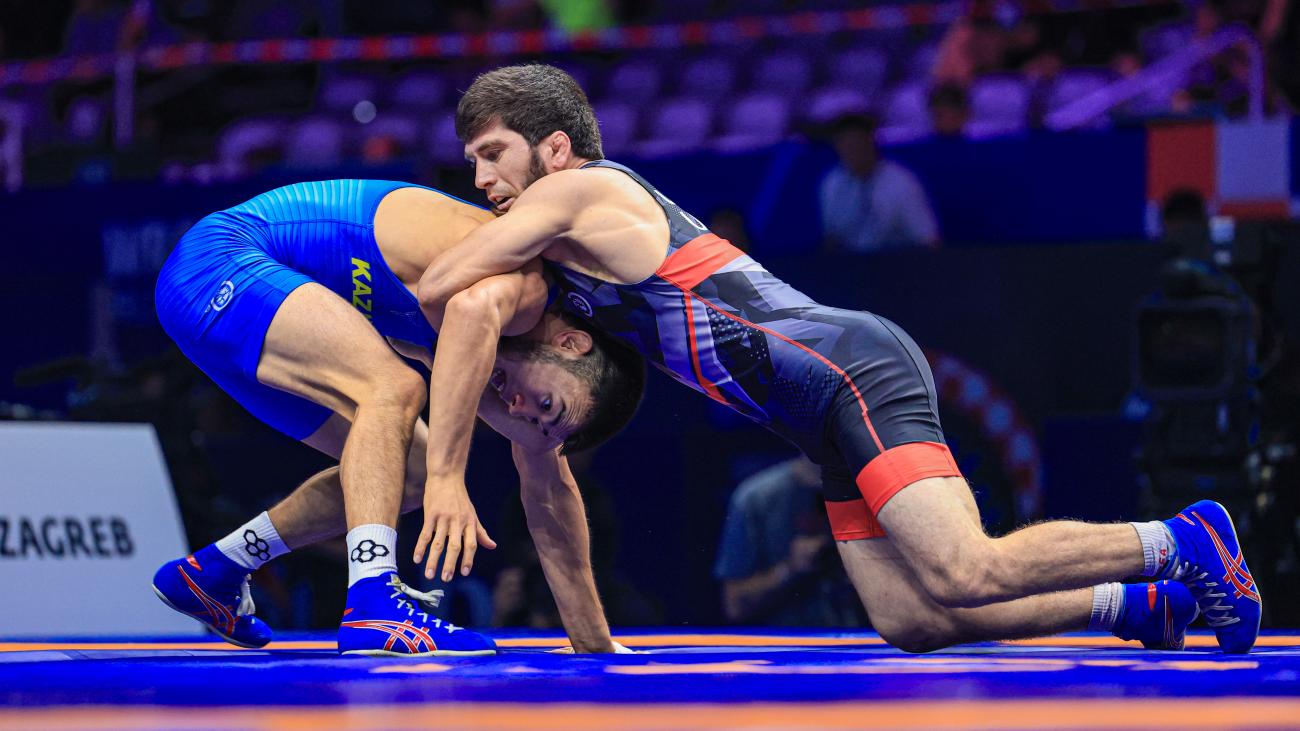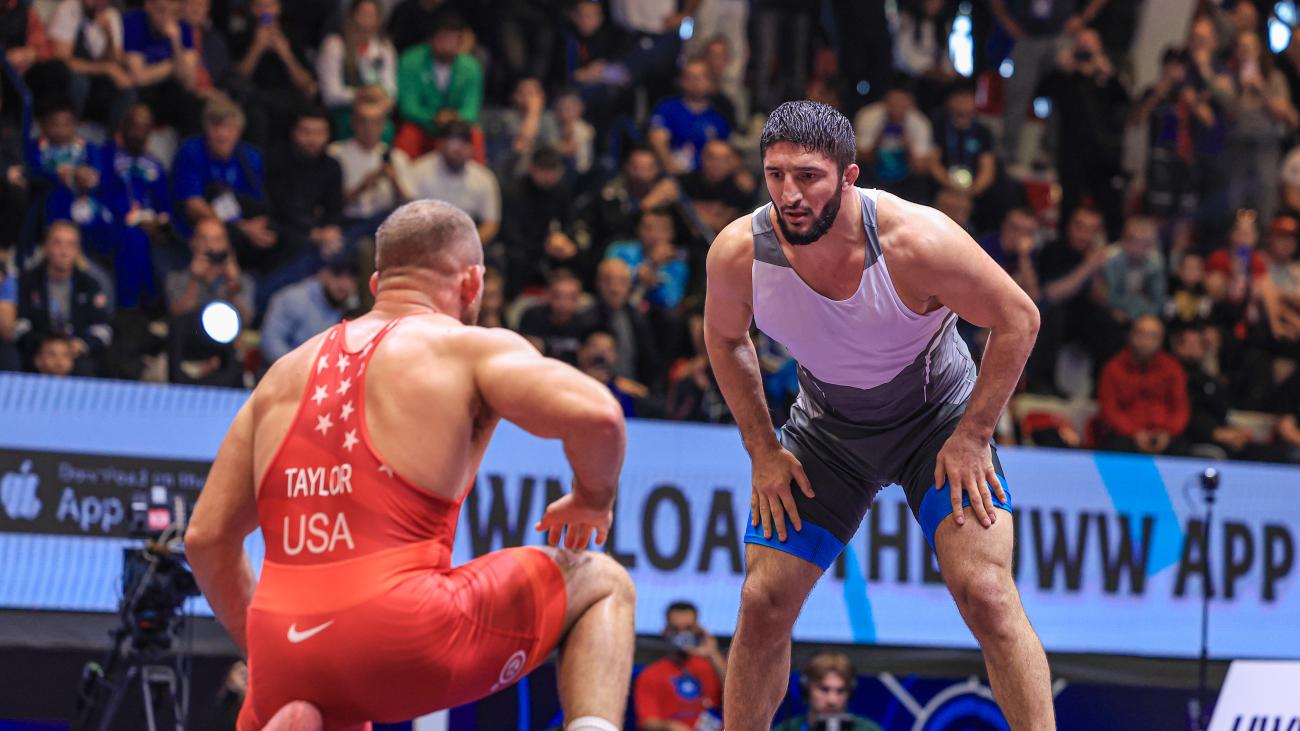CORSIER-SUR-VEVEY, Switzerland (May 25) -- Dimitry Mindiashvili, wrestling coach to several Olympic champions around Russia, died of pneumonia Monday at the Krasnoyarsk Regional Clinical Hospital. He was 87.
Mindiashvili, who cornered Ivan Yariguin during his Olympic gold medal turns in 1972 and 1976, and Buvaisar Satiev in 1992, 1996, and 2004 was a beloved leader in Krasnoyarsk, and the sport of wrestling. His death prompted an outpouring of support from around Russia and the world.
"Dmitry Mindiashvili is a legendary coach in Krasnoyarsk. He had an unbounded commitment to our sport of wrestling for its development in Russia and the development of the athletes to allow them to achieve their goals, their dreams," Nenad Lalovic, the President of United World Wrestling, said.
President Lalovic, Secretary General Dusson and all the members of United World Wrestling extend their regrets and sincere condolences to all the Russian Wrestling Federation and express their deepest sympathies to Mindiashvili’s family.
"Dmitry Georgievich left a great memory behind him," Mihail Mamiashvili, president of the Russian Wrestling Federation [FSBR], said. "He was a real worker and a real creator. Not just a wonderful coach, but a teacher and educator.”
Mamiashvili aptly described the 87-year-old Mindashvili. He results and records helped him reach the pinnacle of coaching. But it was his relationship with his students that made him a father-figure to most the them.
“He was like a father to most of his students because we respected him a lot,” Viktor Alekseev, two-time world champion and one of Mindashvili's students, told UWW.
It was not a overnight transformation of the wrestling in Krasnoyarsk. In fact, when Mindashvili first arrived in the region, the only wrestling that existed there was the traditional wrestling. He single handedly turned that around.
In one of the interviews at the 2013 Ivan Yargiun tournament, Mindashvili said that “only two kids wrestled and I was the coach.” That was the late 1950s.
Mindiashvili was born on June 4, 1933 in Tbilisi, Georgia. Like his father, he served in the army and was on hydrogen bomb testing site in what is now Kazakhstan. That was his last appointment with the army.
He soon came to the Krasnoyarsk Territory where he worked and wrestled with little success. Despite being the champion in the Krasonyarsk championships, he finished fourth at the USSR Championships. Wrestling success ended there for Mindashvili, who later shifted his focus to coaching.
In 1968 at the USSR Championships, a teenage boy named Ivan Yargiun became the champion. Four years later, he became the Olympic champion, the first-ever in Krasonyarsk's history.
Mindashvili, by his own admission, said that no one believed that Krosnoyarsk could produce champion wrestler. Yet, here was Yargiun, winning the gold medal once again in 1976 Olympics.
Mindashvili took pride in his style of coaching and 'honest wrestling'. As a coach, he would form a relationship with his students that went beyond the mat.
“Relationship between a student and mentor are very important,” he once said. “My mantra, which I formed myself and didn't learn from anyone, is that I should take upon myself the fate of people who used to come and still come to me. I am interested in everything. How they live, study, who their company is and who are their friends.”
“I value human ties very much, I try not to destroy them, to respect the opinion of others, even if it does not coincide with my own, and many people answer me in the same way. A large circle of friends and acquaintances give me the opportunity to see life in all its diversity, and this is great.”
It was this style of coaching that formed never-ending relationships with his students. After Yargiun set the tone, another of Mindashvili's student Buvaysar Saitiev followed it. He won the gold medal at the Olympic Games three times. To name a few more, Olympic champion Sagid Murtazaliev, Olympic medalists Sergey Karamchakov and Adam Barakhoev, two-time world champions Viktor Lebedev and Viktor Alekseev all came the Mindashvili school of wrestling.
His contribution have not gone unnoticed. There is a famous picture of him with many laurels on his blazer and medals around his neck.
One of those pins is the title of Hero of Labor of the Russian Federation for special labor services to the state and people. He was also named the 'coach of the 20th century.'
“Dmitry Georgievich has brought up dozens of outstanding athletes: among his students are prize-winners of the most prestigious world championships, including the Olympic Games. He teaches athletes not only to fight and win, but also to be worthy people, honest, noble, always ready to help,” Vladimir Putin, president of Russia, had said in his speech in 2020.
Perhaps it his coaching that helped Yargiun retire before the 1980 Olympics to make way for younger wrestlers in the team. He would later coach the USSR team for 10 years starting 1982.
A couple of years after the Soviet Union fell, Yargiun was appointed the president of the national wrestling federation. During those testing times, he rose to the occasion and led the federation with authority and clarity.
"All my life, Ivan and I were together with Dmitry Georgievich, and he is a unique person, an excellent organizer. He has the ability to captivate all the guys, possesses a mentoring talent, and first of all he is not a coach, but a teacher," Natalya Yarygina, the former vice-president of the FSBR, first.
It was Mindashvili's mantras of success that he had instilled in his wrestlers that made him stand apart as a coach. In making Russia the wrestling powerhouse it is now, Mindashvili played a huge role. He was appointed the coach of the senior USSR national team in 1970 and he attended all Olympic Games till 2008.
“He had a way of thinking ahead of everyone else,” Alekseev said. “His intiutions were always right and he had a way with people that made him successful. He would always get along with everyone.”
Three-time Olympic winner in Greco-Roman Alexander Karelin agrees.
"Dmitry Georgievich was always happy with strong people and was devoted to wrestling, the personification of wrestling friendship. If kindness can be persistent, this is about him," he said.
Ask anyone who has been to the Mindiashvili Wrestling Academy, the coach will always show up for training. He did this until the last couple of years when his health began deteriorating.
Unfortunately, he won't be around when the Ivan Yargiun Grand Prix, a tournament he made famous even when wrestling in Russia was dominated by the Caucasus region, begins Thursday in Krasnoyarsk. But the wrestlers and organizers will pay tribute to a coach who was proud of his work and his wrestling.
“When I will close my eyes for the last time, even God will have no reason to reproach me for something, some dishonest behaviour. Our wrestling is honest,” he had said.





